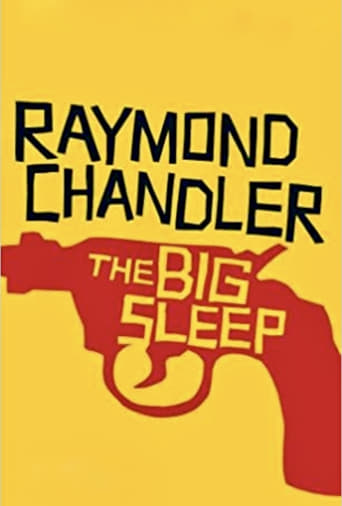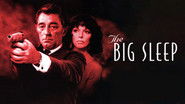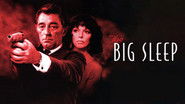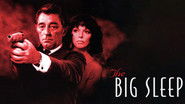valdaquende-39713
Rating this film is a tough go. As a long-time fan of Chandler's stories, I appreciate and watch every film based upon them. Some are stunning; some are not. This one is in-between.First a word about Robert Mitchum. Watching him in 'Farewell My Lovely' (1975), I had to conclude that of all the portrayals of Philip Marlowe I have seen (by Humphrey Bogart, James Garner, Dick Powell, James Caan, Elliot Gould, Robert Montgomery, George Montgomery, Powers Boothe and several others), Robert Mitchum stands out as the most realistic Philip Marlowe of them all. Shop-worn, hard-bitten but with a kindly and chivalrous streak within; aging but still very vital and with a solid 'authority'(for want of a better term) in the role, Mitchum made as perfect a Philip Marlowe as has ever graced the screen - in 'Farewell My Lovely'.Unfortunately, in this film he probably won't impress you in this way but that is not his fault; it's the screenwriter's. Sadly, it was decided, for whatever reason, to transplant the story to England; a transplant that doesn't work very well. The gritty world in which Marlowe lives is not a very good fit for the English countryside and the locales and characters lack the film-noir geist that Chandler's world evokes: the crazy mixture of glitz and sleaze, glamour and grittiness that was post-prohibition Los Angeles.Nonetheless, this film has a number of redeeming qualities; the acting is quite good, the plot adheres to Chandler's story much more closely than the Bogart/Bacall version and the scenes, cinematography and direction are competent and entertaining.
Scott LeBrun
"The Big Sleep" '78 is not so much a remake of the earlier Howard Hawks favorite as a more faithful reading of the Raymond Chandler novel, albeit transposed by screenwriter / director Michael Winner ("Death Wish") to modern day London. A very appealing Robert Mitchum reprises the role of private eye Philip Marlowe (after his portrayal in "Farewell, My Lovely" in 1975), hired by dying American military man General Sternwood (James Stewart, who makes the most of two brief scenes). The case is a matter of investigating a blackmailer...at least, that would *seem* to be the case. As Marlowe finds out, there's an awful lot going on here, but he handles all of it in great style.Winner treats this material with quite a bit of humor, rendering it positively silly on a frequent basis. It makes one believe that he had contempt for it. But Chandlers' story is fortunately still engrossing, and it's the kind of thing that really keeps viewers on their toes, trying to pay attention to all the details and twists. (Since there's much exposition to digest, viewers can't afford to let their attention wander.) The film *looks* absolutely great, with fine use of locations and lovely photography. It's spiced up with some (tastefully done) nudity, but it's never ever very violent.The main draw is a sterling group of American and British actors. Sarah Miles, Richard Boone, Joan Collins, Edward Fox, John Mills, Oliver Reed (typically amusing as a threatening gangster / casino owner), Harry Andrews, Colin Blakely, Richard Todd, Diana Quick, and James Donald are all present and accounted for. Mitchum anchors the proceedings with his colorful performance, but dragging things down quite a bit is the way overdone airhead shtick by Candy Clark, playing Sternwoods' younger daughter. Usually she's pretty reliable, but here she's much too annoying. Mitchum and company do have fun with the sometimes witty and lively dialogue.Well paced, and fairly energetic, but overall not especially memorable. Some people might want to just revisit the Bogie and Bacall version instead.Six out of 10.
pantagruella
Michael Winner doesn't have the best reputations as a director. It does seem like a crass act to switch Marlowe to London. I think Robert Mitchum has enough presence, humour and dignity to carry the film and it is a deliciously complicated plot. However my interest is in the many minor treats on the journey to the conclusion. Who wouldn't want to see Oliver Reed in his prime, a traditional British actor who was in his prime the day he died. Then there's Joan Collins working on her nails. There are many agreeable old cars, quaint Chelsea aspects and snaps of the Thames. I was reminded of the subversive humour of the Avengers especially with all that background jazz percussion. Some of the camera angles will indicate when the director was interested. I suppose this film is a lot more fun now than it was when it was released.
okaycuckoo
Winner's version is more faithful to the story than the mess served up in 1946 by Hawkes, Bogart and Bacall. The switch to England is okay - maybe could have done more interesting things with it. Not sure about the switch of era. But both movies fail to use the two major characters in the story: Rusty Regan (who never appears) and Carmen Sternwood, who is pure evil. This version really tries to stick with the structure of Chandler's story, instead of whoring it out to the star names, but nobody has captured the evil and the sense of futility that Chandler wrote about. Marlowe's character dominates the drama, along with whichever actress is chosen for Bacall's original part - but he's just the wise-cracking narrator, an observer, and she's a bit-player! Cast Carmen properly, and then we'll see.







